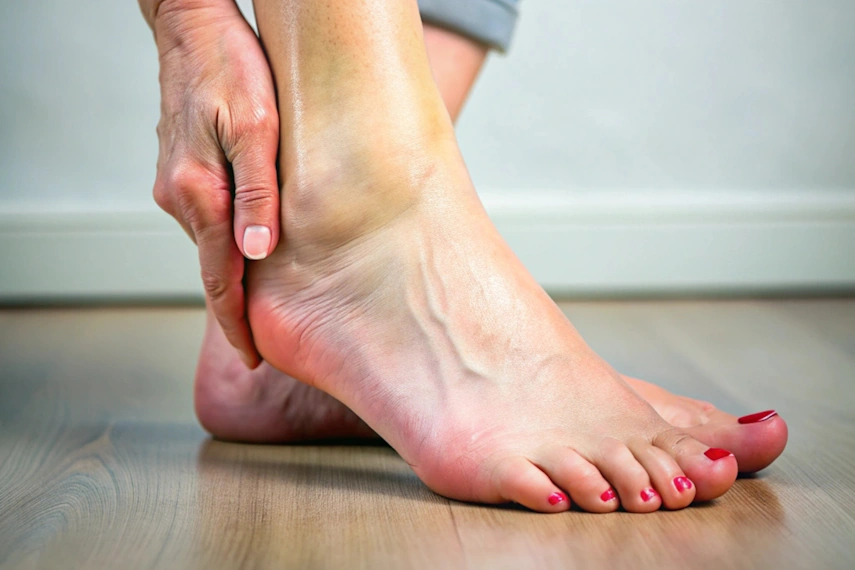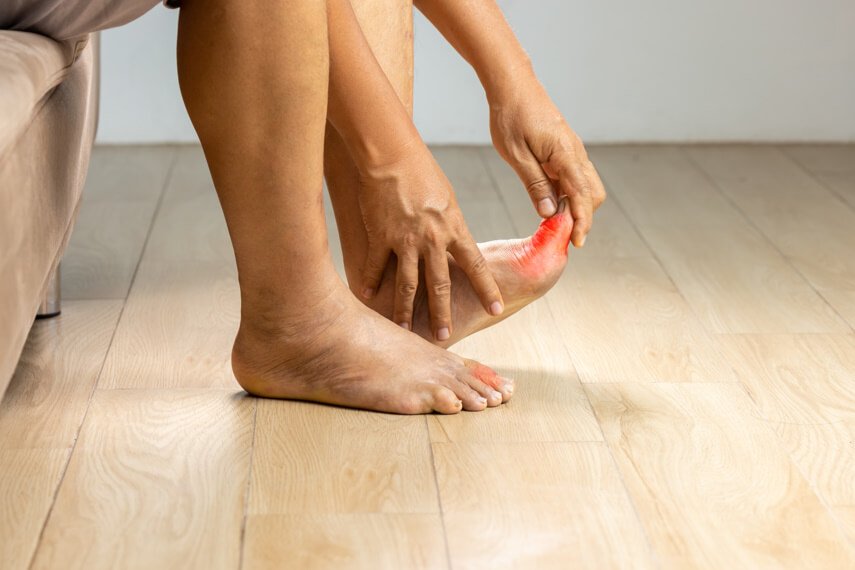Foot Health: Expert Solutions for Common Foot Conditions in Diabetic Patients
Living with diabetes presents unique challenges, especially when it comes to foot health. Foot complications are not just painful—they can severely impact a diabetic patient's daily life. Conditions like pain in the bottom of the foot, diabetic foot ulcer symptoms, and foot swelling and pain can lead to long-term disability if not addressed promptly.
This is where early diagnosis and professional care at Surat Diabetic Foot Care can make a significant difference. If left untreated, diabetic foot diseases can lead to serious complications, including infections and, in extreme cases, amputations. The key is timely intervention and consistent foot care to avoid severe outcomes.
In this blog, we’ll explore common foot conditions that affect diabetic patients, signs to watch for, and the available treatment for diabetic feet to ensure better foot health and quality of life.
Common Foot Conditions in Diabetic Patients
Diabetic patients are at a higher risk of developing various foot problems, which can be both painful and debilitating if not managed early. Below are some common conditions faced by individuals with diabetes:
- Dry skin, calluses, and corns: Due to poor blood circulation, diabetic patients' feet can become dry, leading to cracks, calluses, and corns.
- Blisters and ulcers: Due to nerve damage, diabetic patients often experience blisters that may go unnoticed. These can develop into diabetic foot ulcers, posing a high risk of infection.
- Fungal infections and warts: Compromised immunity makes fungal infections, such as athlete's foot, more common, causing itching, redness, and discomfort.
- Foot deformities: Structural issues like flat feet or high arches are prevalent, increasing the likelihood of pain in the bottom of the foot and difficulty walking.
- Nonhealing ulcers: One of the most severe complications is the formation of nonhealing ulcers, which often result in infections and could even lead to amputation if not treated promptly.
Signs and Symptoms to Watch For
Keeping an eye on your feet and recognising warning signs can save you from future complications. Here are the most common diabetic foot ulcer symptoms and other signs to be aware of:
- Persistent dry skin or unusual growths: Flaky, dry skin that doesn’t heal or calluses and corns that form despite regular care can signal underlying issues.
- Blisters, sores, and discolouration: Wounds that take longer to heal or changes in the skin colour of your feet, are severe signs that need immediate attention.
- Pain, swelling, and burning sensations: If you experience consistent foot swelling and pain, burning, or tingling, this could be due to nerve damage or inflammation related to diabetic foot problems.
- Changes in foot shape: Sudden changes in the shape of your foot, such as increased flattening or arch height, can be early indicators of diabetic leg problems and foot deformities.
Monitoring these symptoms closely can help you seek timely medical advice and avoid severe complications.
Treatment Options at Surat Diabetic Foot Care
At Surat Diabetic Foot Care, we offer a comprehensive range of solutions to help manage and treat foot issues in diabetic patients. Our services are tailored to meet the unique needs of each patient, ensuring the best outcomes.
- Topical treatments and medications: We provide specialised creams and medications to treat fungal infections, dry skin, and early-stage ulcers.
- Debridement and advanced wound care: For severe cases, especially nonhealing ulcers, our team performs debridement—removing dead tissue to promote healing.
- Orthotics and surgical interventions: If you suffer from foot deformities, such as flat feet or high arches, custom orthotics or surgical options can correct the problem and prevent further deterioration.
- Personalised hygiene and foot care guidance: Prevention is key in managing diabetic foot diseases. Our specialists provide tailored advice on daily foot care routines to avoid infections and complications.
At Surat Diabetic Foot Care, a comprehensive range of treatment options is available, encompassing both surgical treatment and non-surgical treatment approaches for all diabetic foot-related conditions/problems. This ensures that patients receive tailored care suited to their specific needs. For more information, visit their website here.
Special Care for Diabetic Patients
For diabetic patients, foot care is even more critical due to the elevated risks involved. Diabetic foot problems can escalate quickly due to nerve damage (neuropathy), poor circulation, and delayed healing.
Regular foot examinations and early intervention can prevent severe outcomes, such as ulcers, infections, and even amputations. Our experts at Surat Diabetic Foot Care are well-equipped to provide specialised care and attention, ensuring that your foot health is always a priority.
When to Seek Medical Help
Noticing a few common symptoms like pain in the bottom of your foot or persistent swelling, can often be dismissed as minor issues. However, if these symptoms worsen, it's crucial to seek medical advice.
- Worsening symptoms: If the pain, swelling, or discomfort increases or doesn’t improve with basic care, contact your doctor immediately.
- Non-healing sores or infections: If you have ulcers or sores that aren’t healing, this is a red flag for deeper issues, including infections that require immediate treatment.
- Unexplained changes in foot structure or skin: Any sudden change in the shape or appearance of your feet could indicate an underlying complication.
Conclusion: Protect Your Foot Health with Timely Care
Foot health is essential, especially for diabetic patients. Recognising the early signs of diabetic foot problems and seeking prompt treatment is the best way to avoid serious complications like infections or amputations. With professional care, such as that offered at Surat Diabetic Foot Care, you can take the right steps toward long-term foot health.
Book an appointment with Dr. Ashutosh Shah, the best diabetic foot surgeon in Surat, to ensure your feet get the expert care they need.
Your foot health deserves attention. Don’t wait for complications to arise. Book an appointment with Surat Diabetic Foot Care today and take the first step towards healthier, pain-free feet.
FAQs
What are the most common foot conditions in diabetic patients?
Common conditions include dry skin, calluses, blisters, diabetic foot ulcers, and fungal infections. Structural deformities like flat feet are also frequent.
How can I prevent foot conditions?
Regular foot checks, proper hygiene, moisturising, and supportive footwear can prevent issues. Always follow your doctor's advice for specialised foot care.
When should I seek medical help for foot problems?
Seek medical help if you notice persistent sores, nonhealing ulcers, swelling, or changes in foot structure. .
Why are foot infections common in diabetics?
Poor circulation and nerve damage in diabetics weaken the body’s ability to fight infections, making foot infections more common.
What is the diabetic foot condition called?
The condition is known as diabetic foot disease, and it includes a range of foot issues specific to diabetics.
What is the most common organism in diabetic foot?
The most common organism is Staphylococcus aureus, which can cause serious infections in ulcers.
What is the best treatment for foot swelling and pain?
Foot swelling and pain treatment typically includes rest, elevating the foot, applying ice, and wearing supportive footwear. For diabetic patients, it's essential to consult a doctor for tailored care, as swelling may indicate poor circulation or infection.
Why do I feel pain in the bottom of my foot?
Pain in the bottom of the foot can be due to various factors, including flat feet, diabetic foot problems, or nerve damage. It's important to consult a healthcare provider for an accurate diagnosis and treatment.







.jpg)

